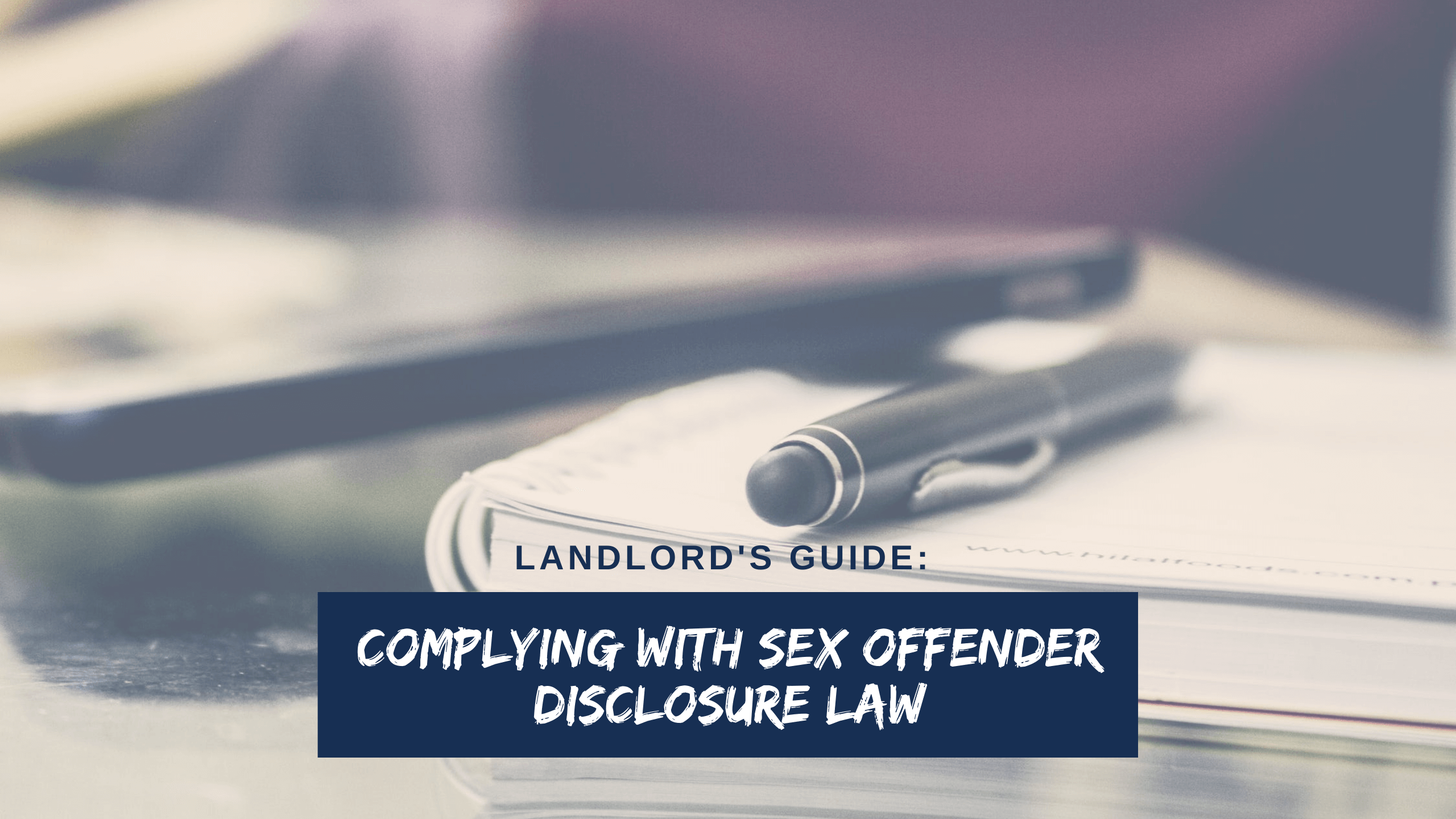Sexual assault is, unfortunately, one of the most common crimes in the United States. Studies suggest that approximately 70% of the reported sexual assaults happen with children below the age of 17. The abusers are usually found to be neighbors, friends, or family members.
To control the rising number of cases of sexual assault, the California government has sanctioned a legislation that requires landlords to make certain disclosures about sex offenders to tenants while renting the property so that parents and guardians can better protect their children from sex offenders.
The following information can help you in effectively complying with California’s Sex Offender Disclosure Law, also known as Megan’s Law, in LA County.
What is Megan's Law?
Megan's Law is named after Megan Kanka, a seven-year-old girl who was brutally raped and murdered by an offender living in her neighborhood. The widespread indignation following this incident led to the emergence of this law.
Signed in 1996 by President Bill Clinton, the law commands that every sex offender be registered with the National Sex Offender Registry superintended by the FBI. Every state has a register that keeps the records of the offenders.
The Megan's Law website provides detailed information on the registered sexual offenders pursuant to California Penal Code Section 290.46. It includes:
- The offender's name and the aliases.
- A photograph
- Information for identification (tattoos, scars, and physical characteristics such as eye color, height, weight.)
- The specification of the offenses under California Penal Code 290 sex offender registration law.
- Home address for serious sex offenders, or ZIP code for less severe offenders.
How Can LA County Landlords Comply with California’s Sex Offender Disclosure Law?
- Disclose all Information Relevant to Megan’s Law
The landlords must disclose all the information relevant under Megan's Law explicitly, before the tenant signs the lease.
The disclosure should be as follows:
Notice: "Pursuant to Section 290.46 of the Penal Code, information about specified registered sex offenders is made available to the public via California Megan's Law Website by the California Department of Justice. Depending on an offender's criminal history, this information will include either the address at which the offender resides or the community of residence and ZIP Code in which he or she resides."
- Be Careful While Renting Your Property to Registered Sex Offenders
Landlords are often unsure about whether or not they should rent their LA county rental to a potential tenant who is registered as a sex offender and has served time in prison.
Technically speaking, if the sex offender has served their prison time, you cannot deny renting your LA county home to them or it will breach fair housing laws. However, you need to ensure that you offer full disclosure to your neighbors.
- Know Penalties for Misusing the Law
Although Megan's Law is enacted to safeguard the children living in the vicinity, it does not authorize you to deny residency to any potential tenants with criminal records. For example, if you discover that a prospective renter was found guilty of sexual offense and has served his period in jail you cannot use this information to reject his rental application directly or indirectly, you will be accused of misusing Megan's Law.
The federal fair housing agencies can take legal action against you if found guilty of such a charge, and the potential tenant might take you to court, which will cost you a ton in legal fees, along with having to pay a hefty fine for violating fair housing laws.
- Deal With a Catch-22 Situation
Landlords in LA County should strike a balance while complying with the Fair Housing Laws and Megan's Law. On one hand, landlords are required to disclose to the tenants about Megan's Law in order to protect their children from registered sex offenders living in the locality. On the other hand, they cannot use the offender's information obtained through the website to deny accommodation if the offender applies for tenancy in their own rental house.
HUD guidelines recommend against rejecting a candidate's application solely based on their criminal history. A better approach for landlords is to assess the details associated with the conviction and make a more logical decision. If the facts indicate that the person could be an immediate threat to the neighbors, or yourself, you can deny renting your property to them.
- Implement A Thorough Screening Process
To avoid Megan’s Law’s penalties, landlords must have a strict screening process where they check the potential tenant’s background information and credit score. This is an effective way of filtering tenants who can create problems in your neighborhood.
Having a trusted Los Angeles property management company, like Bell Properties, by your side can be helpful at such times. Property managers are skilled at handling such situations and will help you understand the laws and their implications better.
Bell Properties has been in the Los Angeles real estate business for the past 16 years and our property managers are some of the most reputed and updated with the state and federal housing laws to make sure that every step you take throughout your rental business abides by all laws.
 For more advice about how you can comply with California’s Sex Offenders Disclosure Law, reach out to us at Bell Properties.
For more advice about how you can comply with California’s Sex Offenders Disclosure Law, reach out to us at Bell Properties.


